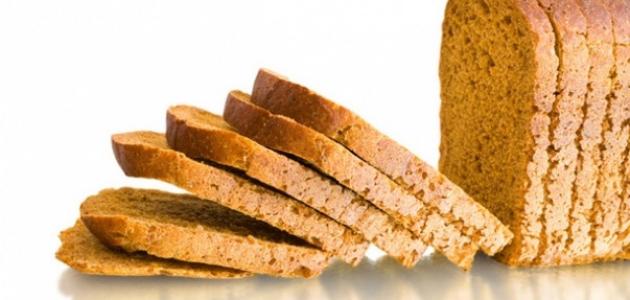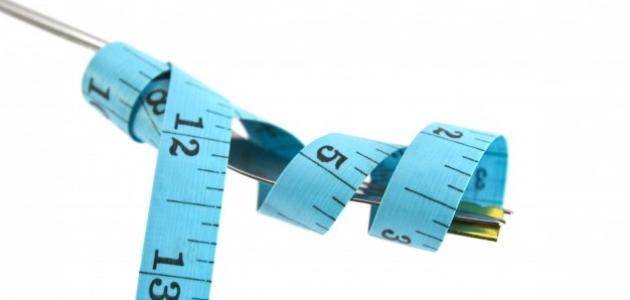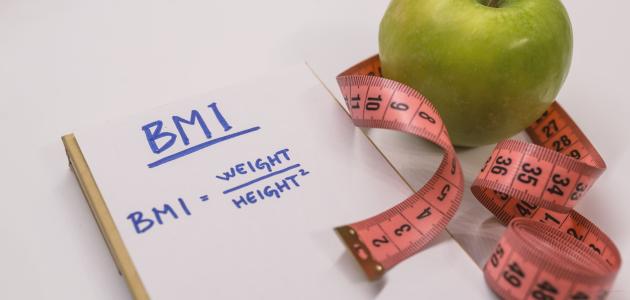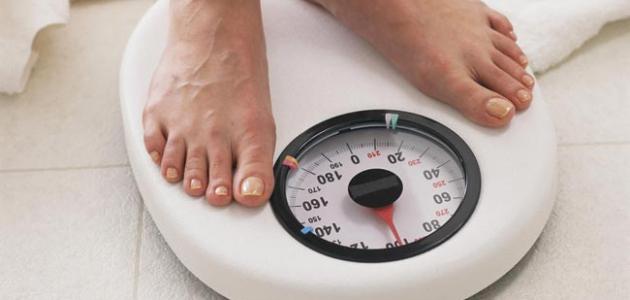Contents
Weight loss
Obesity and weight gain can lead to many health problems, such as: heart disease, diabetes, high blood pressure, stroke, and degenerative arthritis (osteoarthritis), but it is not necessary to reach the ideal weight to reduce the risk of health problems. Associated with obesity, as losing 10% of the total body weight can clearly reduce the risk of these diseases, and losing only this percentage of weight is a good start to continuing to lose more weight and reach the ideal weight, despite the presence of many systems of obsession Fad diet, eating a balanced diet and lifestyle is the key to better weight control and a healthy lifestyle. [1] [2]
Studies on Ramadan's role in weight loss
Studies on Ramadan and weight loss were divided into two types:
- Ramadan fast with consuming the same previous calories:
- A study published in the Singapore Medical Journal in 2006, in which 81 students of Tehran University of Medical Sciences participated, who followed the same diet before and during Ramadan, as well as continuing their normal life and activities, that a slight weight loss was observed. And the body mass index in the month of Ramadan for males and females, the average weight of males before Ramadan was 68.7 kilograms, and after the month of Ramadan it became 67.5 kilograms, while the average weight of females was 55.7 kilograms before Ramadan, and after that it became 54.6 kilograms. [3]
- A study published in the Singapore Medical Journal in 2007, with the participation of 57 students from the Hashemite University in Jordan, showed that the weight and body mass index decreased during fasting in the month of Ramadan, although there was no significant change in the rate of calories and nutrients intake. And physical activity, but the average weight of female students has decreased, as it was 57.5 kilograms a week before Ramadan, and at the end of the last week of Ramadan, the average weight was 56.9 kilograms. [4]
- Ramadan fasting while cutting back on previous calories:
- A study published in the Pakistan Journal of Biological Sciences in 2007, in which 28 young men aged 20 to 26 years were overweight, indicated that they followed a balanced diet containing 2,000 calories during Ramadan, but they were following an open diet a month earlier. Ramadan, after fasting, average weight and body mass index decreased, so the average weight they had a day before Ramadan was 84.1 kilograms, and a day after the end of Ramadan it was 79.03 kilograms. [5]
- A study published in The Journal of Sports Medicine and Physical Fitness found that a group of people who followed a diet containing 1,220 calories per day during the month of Ramadan, and the results showed that they lost 1.92 kg of weight, in addition to losing 2.8% of fat. [6]
- A systematic review of several studies on weight loss in Ramadan clarified the summary of previous results, and this review was published in the European Journal of Nutrition in 2020, and this review included the results of 85 studies conducted in 25 countries between 1982 and 2019, which showed that fasting during the month of Ramadan It may cause a slight decrease in weight in people over 16 years of age who are not athletes, and who do not suffer from diseases, but the results of the amount of caloric intake before and during Ramadan have not been analyzed, and it is worth noting that the changes that occur to weight due to fasting It varies from person to person, as it can cause weight loss or gain, depending on the total calories consumed during the night, and comparing it to the amount that was consumed before Ramadan, [7]Another review published in the Journal of Public Health Nutrition in 2014 indicated that the weight change during the month of Ramadan was simple, and the previous weight usually returns after the end of the month of Ramadan, [8] so fasting in Ramadan contributes to losing weight a little, and to promote weight loss. It is possible to reduce calories intake as mentioned previously, as the results may be better.
To read about the general benefits of fasting, you can refer to the article on the benefits of fasting the month of Ramadan .
Tips on how to lose weight during Ramadan
- Reducing calories intake: Most women need an average of 2,000 calories per day to maintain weight, while you need to eat about 1,500 calories per day to lose 0.45 kilograms per week, and for men, the average caloric needs of most of them per day is 2,500 calories, and to lose 0.45 kilograms per week, they need to eat approximately 2,000 calories. Weight loss depends on several factors, including age, height, current weight, physical activity level, the health of metabolism, and other factors, [9] and in general, reducing 500 To 1,000 calories a day from the diet helps lose from 0.45 to 0.90 kilograms per week. [10]
- Equal distribution of meals during eating hours: It is recommended to eat multiple small meals, in addition to light meals. [11] These meals can be distributed during the month of Ramadan into three sections, namely: breakfast, a snack after breakfast, and the suhoor meal, [12] It is also recommended to eat a light suhoor meal, which includes vegetables, carbohydrates such as whole grains , rice, or wholegrain bread, and foods rich in protein, in addition to that it is preferable to keep the suhoor meal permanently during Ramadan and not to avoid it, because it provides energy to the body during the fasting period. [13]
- To read more about healthy foods that can be eaten during the pre-dawn period, you can refer to the article What is the best suhoor in Ramadan .
- Avoid eating large amounts and avoiding binge eating at breakfast: Binge eating during breakfast can nullify the positive effect associated with fasting, and may lead to greater harm than the expected benefit. [11]
- Maintaining the consumption of healthy foods and fiber and reducing carbohydrates: It is important to consume whole foods and drinks during the breakfast period, [11] and it is also important to reduce the amount of starches consumed, and this can be done by mixing steamed rice with vegetables or legumes to add flavor, and to increase the amount of fiber in Food, which increases feelings of fullness, [14] and eating dates as a start to breakfast to break the fast is a healthy choice, as it is a rich source of fiber. [13]
- To read more about healthy foods that can be eaten during Iftar, you can refer to the article What is the best breakfast in Ramadan .
- Drinking more water: It is important to drink a large amount of water before starting to eat, in order to help restore the water that the body lost during the fasting period, in addition to reducing the chances of overeating. [15] Drinking water on a regular basis helps to reduce the amount of calories Heat intake, as people often confuse feeling thirsty with feeling hungry . [16]
- Reducing sweets and fatty foods: One study published in Nutrition Journal in 2011 indicated that 59.5% of participants gained weight after Ramadan, and 40% of these people indicated that the reason may be due to the type of food that is usually eaten during The month of Ramadan and its quality, as it is rich in fats, in addition to eating sweets, and the suhoor meal included soft drinks for 19.7% of the participants, and sweets for 22.5% of them, [17] and it is also advised to avoid adding a large amount of oils during cooking. [14]
To read more about foods that can be a lot more and foods that can be reduced or avoided, you can read the article on how to diet during the month of Ramadan .
References
- ↑ Kathleen Davis (15-1-2019), "10 tips for successful weight loss" , www.medicalnewstoday.com , Retrieved 12-4-2020. Edited.
- ↑ Gayle Galletta, "Weight Loss and Control" , www.emedicinehealth.com , Retrieved 12-4-2020. Edited.
- ↑ Ziaee Razaei, the Z Ahmadinejad , , Shaikh And the H Others (2006), "The Changes Of Metabolic profile was And Weight During Ramadan Fasting" , Singapore Medical Journal , Issue 5, 47 the Folder, . Page 409. Edited by .
- ^ Al-Hourani H, Atoum M (2007), “Body composition, nutrient intake and physical activity patterns in young women during Ramadan” , Singapore medical journal , Issue 10, Folder 48, Page 906. Edited.
- ↑ M. Salehi, M. Neghab (2007), "Effects of Fasting and a Medium Calorie Balanced Diet During the Holy Month on Weight, BMI and Some Blood Parameters of Overweight Males" , Pakistan Journal of Biological Sciences , Issue 6, Folder 10, Page 968-971. Edited.
- ↑ N Sweileh, A Schnitzler, G Hunter And Others (1992), “Body Composition and Energy Metabolism in Resting and Exercising Muslims During Ramadan Fast” , The Journal of Sports Medicine and Physical Fitness , Issue 2, Folder 32, Page 156-163 . Edited.
- ↑ Haitham Jahrami, Joud Alsibai, Cain Clark And Others (2020), “A systematic review, meta-analysis, and meta-regression of the impact of diurnal intermittent fasting during Ramadan on body weight in healthy subjects aged 16 years and above” , European Journal of Nutrition , Page 1-26. Edited.
- ↑ Behnam Sadeghirad, Shahrzad Motaghipisheh, Fariba Kolahdooz And Others (2014), “Islamic fasting and weight loss: a systematic review and meta-analysis” , Public health nutrition , Issue 2, Folder 17, Page 396-406. Edited.
- ↑ Kris Gunnars (19-12-2019), "How Many Calories Should You Eat per Day to Lose Weight?" , Www.healthline.com , Retrieved 13-4-2020. Edited.
- ↑ "Counting calories: Get back to weight-loss basics" , www.mayoclinic.org , Retrieved 4/13-2020. Edited.
- ^ A b t Rachael Link (4-9-2018), "16/8 Intermittent Fasting: A Beginner's Guide , " , Www.healthline.com , Retrieved 13-4-2020. Edited.
- ↑ "Stay healthy during Ramadan" , www.who.int , 28-5-2017, Retrieved 4-13-2020. Edited.
- ^ A b "Staying the Healthy During Ramadan" , Www.who.int , 23-5-2018, Retrieved 13-4-2020. Edited.
- ^ A b "Eating Habits To Help You lose 's Weight During Ramadan" , Www.hamad.qa , Retrieved 13-4-2020. Edited.
- ↑ "TOP TIPS FOR A HEALTHY RAMADAN" , www.basildonandbrentwoodccg.nhs.uk , Retrieved 4-4-2020. Edited.
- ↑ Jayne Leonard (1-17-2020), “A guide to 16: 8 intermittent fasting” , www.medicalnewstoday.com , Retrieved 4-13-2020. Edited.
- ↑ Balkees Bakhotmah (2011), "The puzzle of self-reported weight gain in a month of fasting (Ramadan) among a cohort of Saudi families in Jeddah, Western Saudi Arabia" , Nutrition Journal , Issue 1, Folder 10, Page 84. Edited.
















